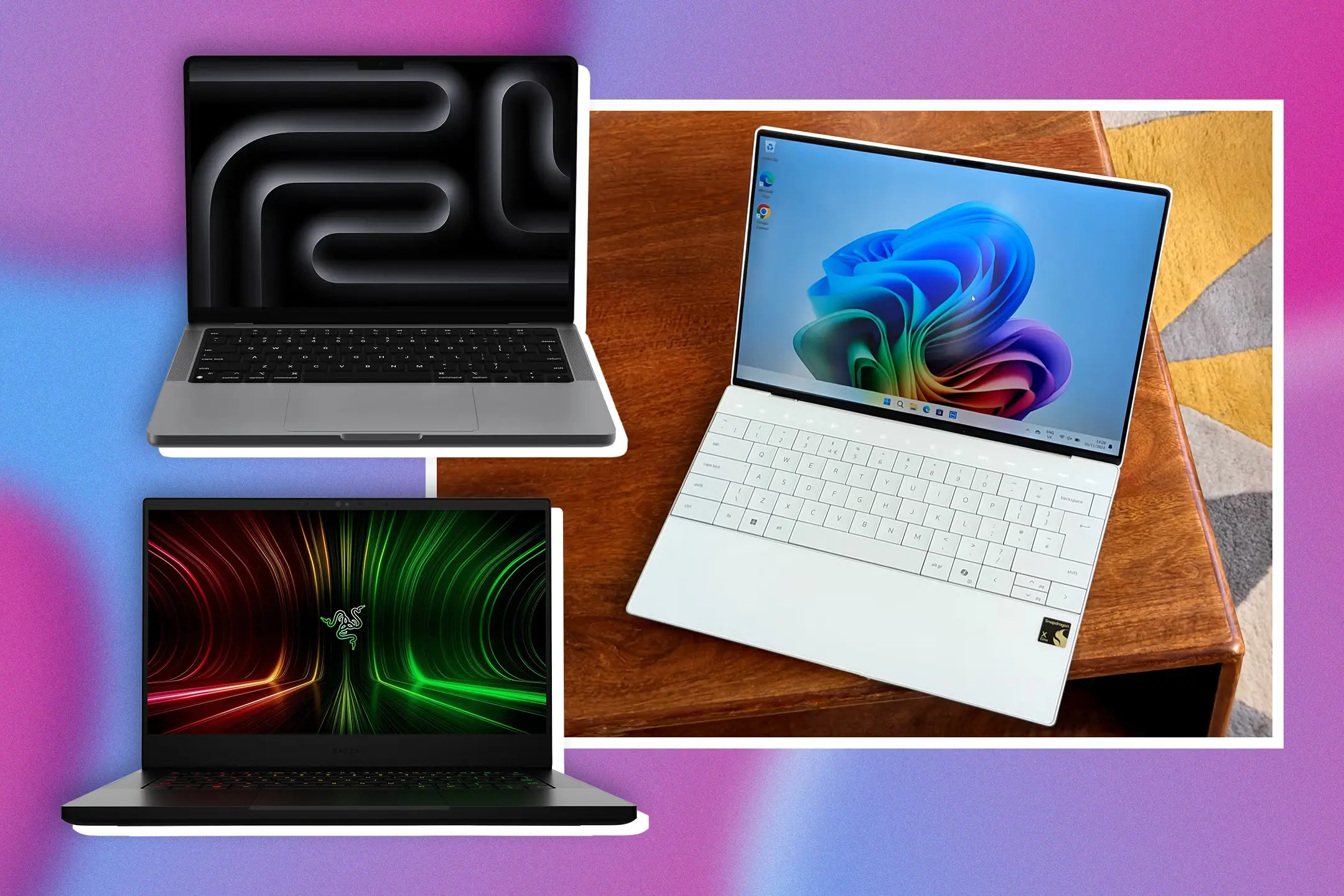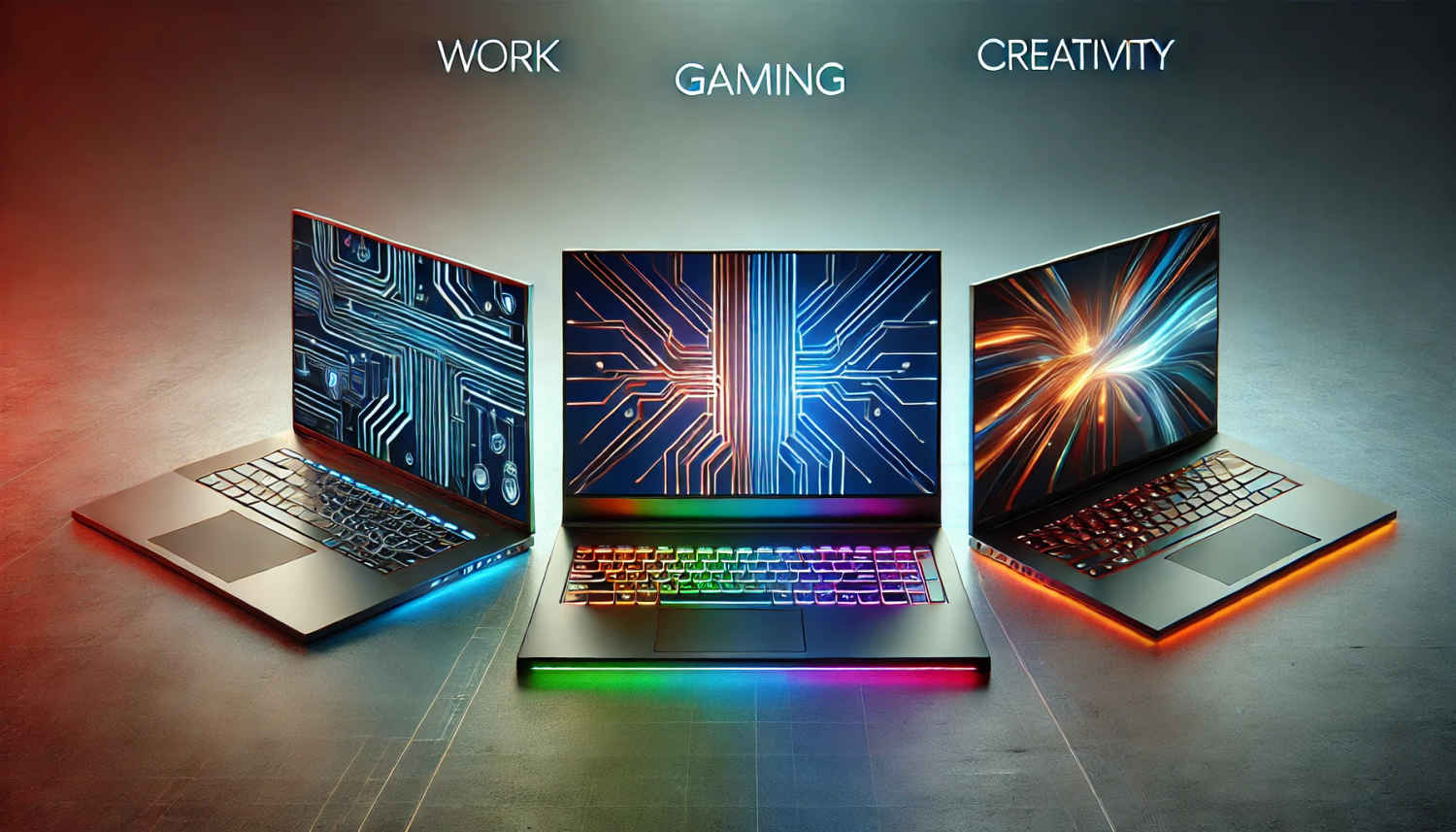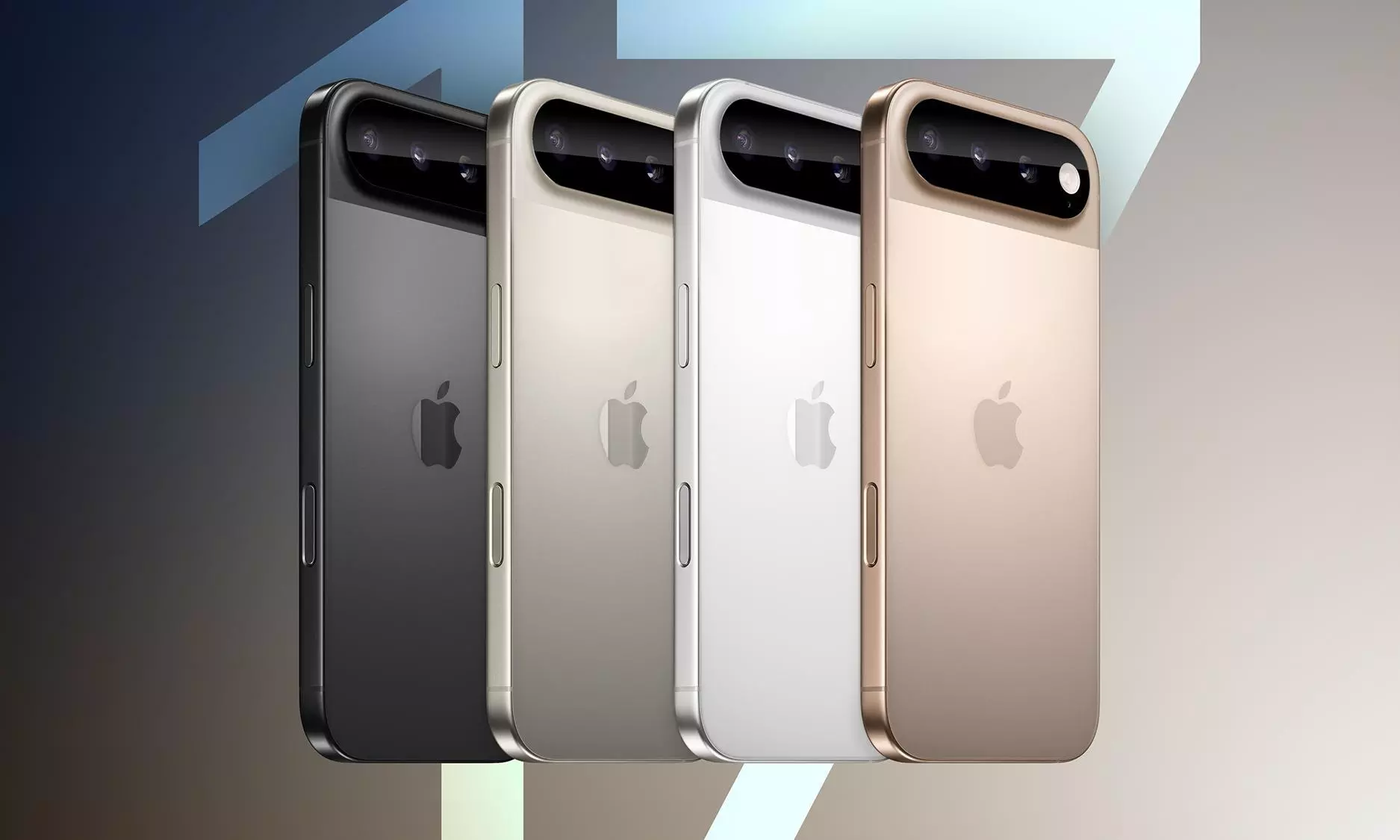Best Laptops for AI Development in 2025: Power, Performance & Portability
Artificial Intelligence (AI) development is more demanding than ever in 2025. Whether you’re training neural networks, building machine learning models, or experimenting with generative AI, you need a laptop with raw computational power, massive RAM, robust GPU support, and future-ready connectivity. But with dozens of choices available, how do you know which one is right for your AI development needs?
This comprehensive guide highlights the best laptops for AI development in 2025, catering to data scientists, ML engineers, students, and AI researchers.
🧠 What Makes a Laptop Good for AI Development?
Before we dive into the list, let’s understand what specifications matter most:
-
High-Performance CPU: Intel Core i9 / AMD Ryzen 9 / Apple M4 or better
-
Dedicated GPU: NVIDIA RTX 40-series / Apple M4 Pro / AMD Radeon for fast training and tensor operations
-
RAM: At least 32GB, preferably 64GB for large datasets
-
Storage: NVMe SSD with 1TB or higher for speed and capacity
-
Linux compatibility or dual boot: For TensorFlow, PyTorch, Jupyter, etc.
-
Good battery + thermals: For mobility without overheating

💻 Top 10 Best Laptops for AI Development in 2025
Here are the best laptops across budgets and use cases:
1. Apple MacBook Pro 16” M4 Pro / Max (2025)
Best for Mac-based AI developers using Core ML, Python, and PyTorch
-
CPU/GPU: Apple M4 Pro or M4 Max chip with Neural Engine
-
RAM: Up to 64GB unified memory
-
Storage: Up to 2TB SSD
-
Display: 16.2-inch Liquid Retina XDR
-
Battery: 20+ hours
Pros:
-
Best-in-class battery and thermals
-
Great for TensorFlow (Metal), CoreML, SwiftML
-
Runs PyTorch natively on Metal backend
Cons:
-
Limited CUDA support (no native NVIDIA GPU)
-
Pricey
Price: Starts at $2,499
2. Dell XPS 17 (2025) with NVIDIA RTX 4080 Laptop GPU
Best Windows laptop for GPU-intensive ML tasks
-
CPU: Intel Core Ultra 9 (Meteor Lake)
-
GPU: NVIDIA GeForce RTX 4080 (16GB GDDR6)
-
RAM: Up to 64GB DDR5
-
Storage: 2TB PCIe Gen4 SSD
-
Display: 17-inch 4K InfinityEdge
Pros:
-
Large screen for multitasking
-
Excellent CUDA support
-
Thunderbolt 4 and advanced cooling
Cons:
-
Heavier and less portable
-
Expensive top-tier config
Price: Starts at $2,899
3. MSI Stealth 16 AI Studio
Best for on-the-go AI developers needing GPU power
-
CPU: Intel Core Ultra 9 185H
-
GPU: NVIDIA RTX 4070 Laptop GPU
-
RAM: 32GB DDR5 (Upgradeable)
-
Storage: 1TB SSD
-
Weight: 1.99kg
Pros:
-
AI-ready hardware
-
Good balance of performance and portability
-
Studio drivers for developers
Cons:
-
Battery life is average
-
Trackpad and keyboard could be better
Price: Around $2,199
4. ASUS ROG Zephyrus G16 (2025)
Best AI dev laptop for dual use: gaming + development
-
CPU: AMD Ryzen 9 8945HS
-
GPU: NVIDIA RTX 4080
-
RAM: 32GB DDR5
-
Storage: 1TB Gen 4 SSD
-
Display: 16-inch QHD+ 240Hz
Pros:
-
Fantastic cooling system
-
DLSS and CUDA support for AI models
-
Portable for a gaming laptop
Cons:
-
Noisy under full load
-
Not for those who prefer a minimalist design
Price: $2,299
5. Lenovo ThinkPad P1 Gen 7 (2025)
Best workstation-class laptop for enterprise AI
-
CPU: Intel Core Ultra 7/9
-
GPU: NVIDIA RTX A4000 or A5000 (Workstation)
-
RAM: Up to 128GB ECC
-
Storage: Up to 4TB SSD
-
OS: Windows/Linux certified
Pros:
-
ECC RAM options for critical AI workloads
-
Professional GPU for AI/ML/DL workloads
-
Certified for Ubuntu, Red Hat, etc.
Cons:
-
Bulky and heavy
-
More expensive than gaming laptops
Price: Starts at $3,499
6. Framework Laptop 16 (2025 Edition)
Best modular laptop for AI devs who love to tinker
-
CPU: AMD Ryzen 9 8945HS or Intel Core Ultra
-
GPU: Optional NVIDIA RTX 4070 via Expansion Bay
-
RAM: Up to 64GB DDR5
-
Storage: Up to 2TB SSD
-
OS: Fully Linux compatible
Pros:
-
Fully upgradable and modular
-
Great Linux support
-
User-replaceable GPU, RAM, ports
Cons:
-
DIY style not for everyone
-
Slight performance trade-offs for modularity
Price: $1,799+ with GPU module
7. HP ZBook Fury G10
Best mobile workstation for AI research professionals
-
CPU: Intel Core i9-14950HX
-
GPU: NVIDIA RTX A5000 (Laptop)
-
RAM: Up to 128GB ECC
-
Storage: 4TB SSD
-
OS: Windows/Linux dual boot
Pros:
-
Built like a tank for large models
-
VR/AR + AI-ready hardware
-
ZCentral Remote Boost software for remote training
Cons:
-
Heavy (2.5kg+)
-
Costly for students
Price: $4,199+
8. Acer Predator Helios Neo 16 (2025)
Budget-friendly AI laptop with great GPU value
-
CPU: Intel Core i7-14700HX
-
GPU: NVIDIA RTX 4060
-
RAM: 32GB DDR5
-
Storage: 1TB SSD
-
Display: 16″ QHD 165Hz
Pros:
-
Solid GPU performance for ML training
-
Affordable
-
Good thermals
Cons:
-
Battery life isn’t ideal
-
Slightly bulkier design
Price: $1,499
9. Razer Blade 18 (2025)
Best for power users with no budget limit
-
CPU: Intel Core i9-14900HX
-
GPU: RTX 4090 (Laptop)
-
RAM: 64GB DDR5
-
Storage: 2TB SSD
-
Display: 18″ QHD+ 240Hz Mini-LED
Pros:
-
Highest-end GPU available in a laptop
-
Desktop-level AI training possible
-
Sleek aluminum build
Cons:
-
Price
-
Battery life is secondary
Price: $4,999+
10. ASUS Zenbook Pro Duo OLED (2025)
Best for multitaskers using AI + creative workflows
-
CPU: Intel Core Ultra 9
-
GPU: RTX 4070
-
RAM: 32GB
-
Storage: 1TB SSD
-
Display: Dual 4K OLED touchscreens
Pros:
-
Second screen for Jupyter, Git, etc.
-
Amazing OLED visuals
-
Great for AI + UI/UX or video workflows
Cons:
-
Heavy and complex layout
-
Expensive for students
Price: $2,699

🔍 AI Laptop Comparison Table (Quick Look)
| Laptop | CPU | GPU | RAM | Best For |
|---|---|---|---|---|
| MacBook Pro M4 | M4 Pro/Max | Apple Neural Engine | 64GB | Apple AI devs |
| Dell XPS 17 | Ultra 9 | RTX 4080 | 64GB | CUDA, deep learning |
| MSI Studio | Ultra 9 | RTX 4070 | 32GB | Mobile AI dev |
| Zephyrus G16 | Ryzen 9 | RTX 4080 | 32GB | AI + gaming |
| ThinkPad P1 | Ultra 9 | RTX A4000 | 128GB | Enterprise AI |
| Framework 16 | Ryzen 9 | RTX 4070 | 64GB | Modular dev |
| ZBook G10 | i9 HX | RTX A5000 | 128GB | AI research |
| Helios Neo | i7 HX | RTX 4060 | 32GB | Budget AI dev |
| Razer Blade 18 | i9 HX | RTX 4090 | 64GB | High-end AI training |
| Zenbook Duo | Ultra 9 | RTX 4070 | 32GB | AI + creative |
🛒 Buying Tips for AI Development Laptops in 2025
-
Prioritize CUDA-compatible GPUs: NVIDIA RTX 40-series or A-series GPUs are best for model training and compatibility.
-
RAM is King: Go for 64GB if you’re working on large datasets or transformer models like LLaMA or GPT-J.
-
Don’t Skimp on Thermals: Look for dual-fan cooling and vapor chamber systems for stability.
-
Consider Linux Compatibility: Most AI dev tools work best on Linux or WSL2. Check for Ubuntu or Fedora support.
-
Battery & Portability: If you’re a student or on-the-go, balance weight with battery life (10+ hours is ideal).
🔚 Final Thoughts
AI development in 2025 demands serious horsepower, and the right laptop can make or break your productivity. Whether you’re training LLMs, prototyping ML models, or deploying edge AI apps, your device needs to keep up with modern AI frameworks.
Choose a MacBook Pro for best-in-class battery and M-series acceleration. Opt for Dell XPS or Razer Blade for pure CUDA power. Students and freelancers can get excellent value from Helios Neo or MSI Studio laptops.
With the right AI laptop in hand, your productivity, performance, and innovation will soar in 2025 and beyond.
❓ FAQs: Best AI Development Laptops
Q1. Do I need a GPU for AI development?
Yes, especially for training and running deep learning models. GPUs significantly speed up tensor computations.
Q2. Is 16GB RAM enough for AI?
Not really. 32GB is the minimum recommended; 64GB is better for multitasking and large models.
Q3. Can I use a MacBook for AI development?
Yes! MacBooks with M-series chips are great for Core ML, SwiftML, and even PyTorch via Metal backend.
Q4. What OS is best for AI devs — Windows, Linux, or macOS?
Linux is most compatible with AI tools. macOS is solid for Apple-based AI. Windows is fine with WSL2.
Q5. Which laptop is best for students learning AI?
Acer Predator Helios Neo or Framework 16 offers great performance for a lower budget.


